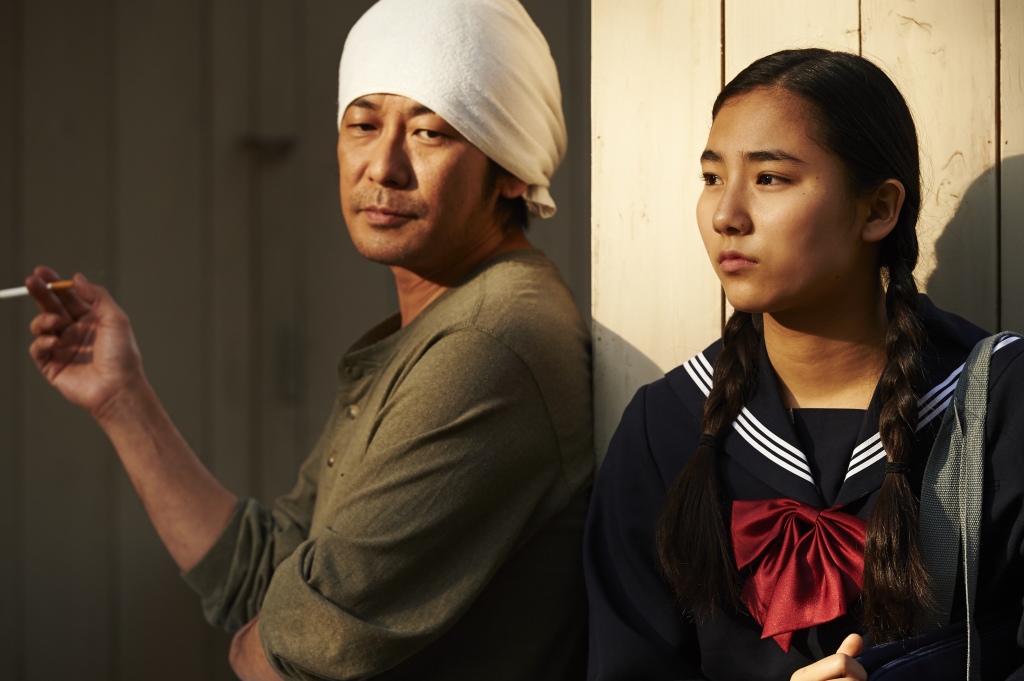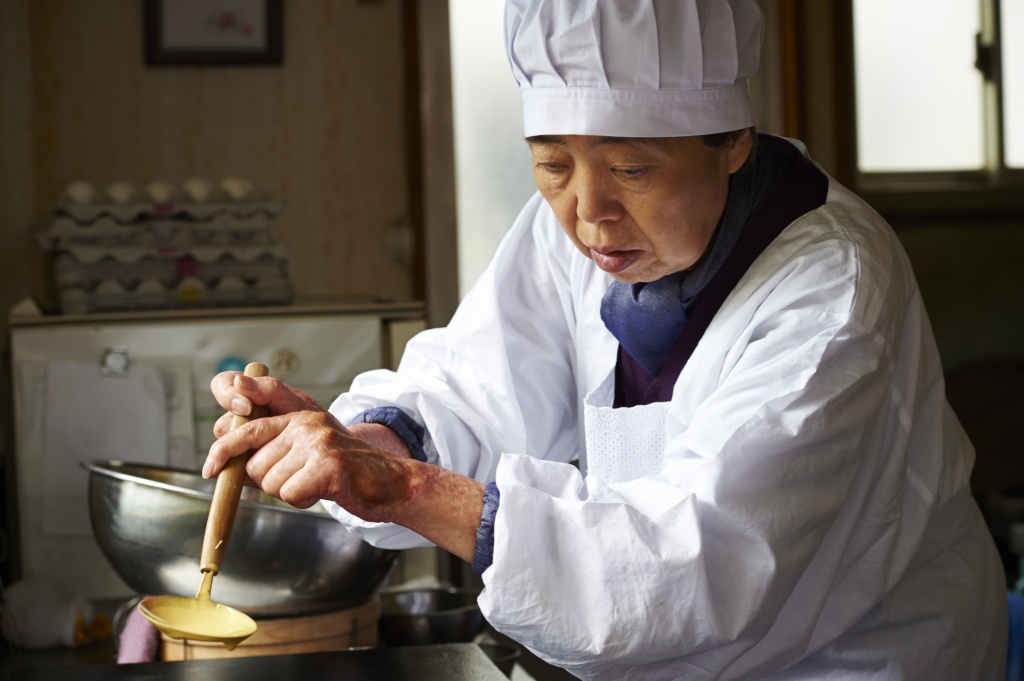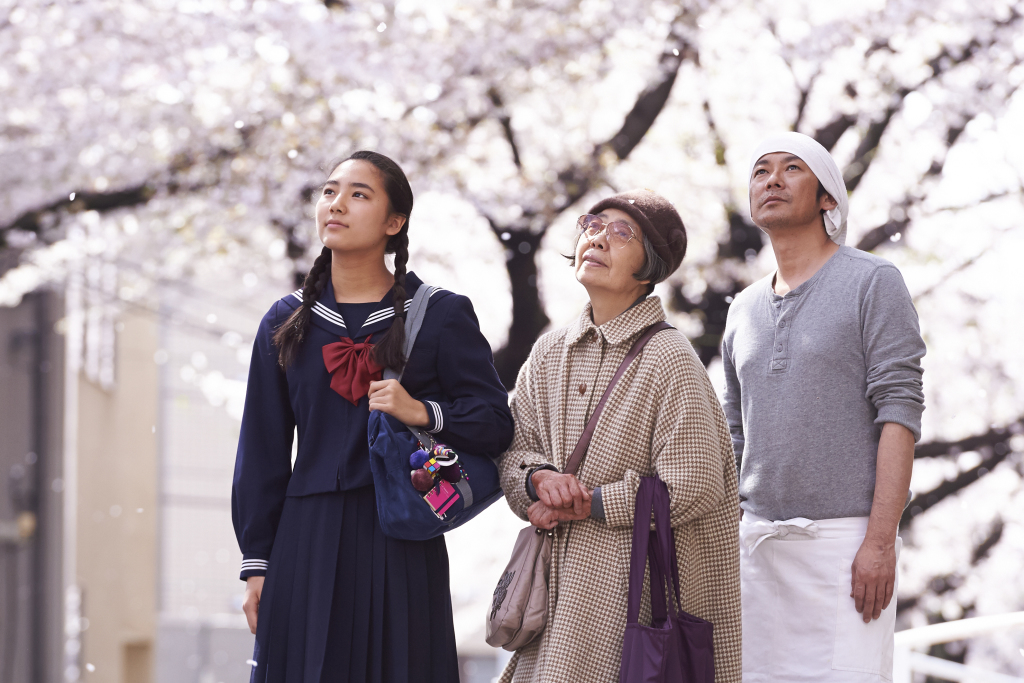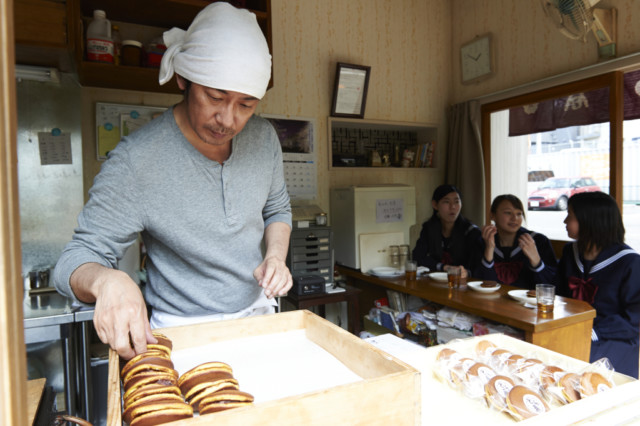At one time or another in our lives we’ve all suffered irrevocable loss, whether it be through the death of a loved one or an end of a relationship. Sometimes such events can lead to trauma that may break us and leave us with psychic wounds.
Based on most of my experiences and stories of dear friends, they never really do heal. Rather, they leave mental scars that hum with a dull ache every once in awhile. And other times during those darker days — they can make one scream. Loss reminds us of our own human frailty.
Ahmad Coo is a producer and copy editor for the Global Business America show on CCTV America. His analysis represents his views alone.
Naomi Kawase’s elegiac film “Sweet Bean” (available on Netflix streaming) explores the meaning of this loss. It also explores how some of society’s most broken individuals come to terms with it.
The main character of the film Sentaro, played by Masatoshi Nagase, is all dour darkness. Sentaro is a baker who owns a sweets shop that specializes in dorayaki, a Japanese pancake filled with sweet red bean paste. He carries himself with such weariness his customers — mostly middle schoolers — poke fun at him for being so grumpy.
One of his regulars is a troubled girl Wakana who’s also harboring some psychic pain. We find out quickly enough that Wakana is emotionally neglected by her single mom. She doesn’t know her father either. Both Sentaro and Wakana are kindred spirits, carrying the weight of the world, sharing silences while one bakes and the other eats.

(Kino Lorber photo)
Their lives seem destined to be in this perpetual gray until Tokue (played masterfully by veteran actress Kirin Kiki) walks into their lives. At first, Sentaro thinks she’s going to buy one of his dorayakis but no, she’s inquiring about a job and confirming with the owner that all ages are welcome to apply.
SPOILER ALERT: The rest of this review covers the entire film, if you plan on watching it, read this later.
Sentaro is all frowns and tries to discourage her at first. But she won’t take no for an answer. Not so coincidentally, during their conversation Tokue points to the cherry blossoms that are beginning to bloom, a hint of a renewal and rebirth that’s about to happen. She leaves disappointed because the owner isn’t budging.
But she’s persistent. One day, she decides to bring a container filled with her own version of the sweet red bean paste for Sentaro to try. He’s somewhat offended and dumps the gift into the bin. Soon after, he’s wracked with guilt and decides to retrieve it from the trash. He takes a little taste, and for the first time in the film you see his face light up. It’s so good he practically shovels the paste into his mouth.

(Kino Lorber photo)
This convinces Sentaro to hire Tokue as a part-time worker. He’ll focus on the pancakes and she’ll make the paste. This is when he discovers the woman’s mangled hands and is a little alarmed. But she assures him she can still make her heavenly concoction.
Almost overnight, business begins to boom for Sentaro. Soon lines begin forming even before the shop opens in the morning and they can’t make the delicacies fast enough to keep up with the demand. As the business is transformed, so are the main characters’ lives. Slowly things begin looking up for the trio. Sentaro even smiles every so often.
The film also subtly draws a parallel between the sweet bean and the lives of the protagonists. Just like the painstaking, complicated and loving way Tokue transforms the azuki beans into the miraculous paste, the main characters lives’ also go through a process of change.
Sentaro starts opening up like the spring blossoms lining the streets around his shop. Wakana is also hopeful about her future after deciding to leave her family and start afresh on her own. Tokue continues weaving her culinary and psychic magic, and Sentaro and Wakana have become her surrogate family.

(Kino Lorber photo)
But life has other plans for the trio’s beautiful symbiosis as reality starts infringing upon their happy little world. Through a series of unfortunate revelations about Tokue, Sentaro is forced to let her go. Everything starts to quickly unravel. His dorayaki business takes a hit and a past he’s been running away from for the past few decades finally catches up with him. Wakana’s mother also puts an end to her plans of running away and living her life the way she wants to.
In the span of a few scenes, their lives seem darker, more desolate. Sentaro takes his firing of Tokue hard. She’s forced again into a very solitary life because of her condition.
Several months later, Sentaro gathers enough courage to visit Tokue with Wakana because they learn from one of her friends that she’s very ill.
Their reunion is bittersweet since it’s clear that Tokue doesn’t have much time left. Even in her pained state, Tokue puts on a brave face and tells her adopted family that everything will be alright. But Sentaro and Wakana are inconsolable.
Kawase’s framing of the shots makes this scene much more devastating. In this sequence, the camera focuses on one character at a time as sadness creeps across their faces. And in the film’s most indelible image, the camera zooms ever so slowly into Sentaro’s crumbling facade. You can practically feel his heart breaking as he starts to sob. He almost looks like a little boy who just lost his mother.
With the passing of Tokue, the director brings the film’s themes of loss, death and rebirth full circle. But her death is what finally convinces Sentaro and Wakana to break away from their troubled lives and start anew.
While loss reminds us of our frail constitutions and how ephemeral the world is, it also awakens us to other possibilities we were previously blind to. Just like Tokue before them, Sentaro and Wakana both learn to let go of life’s little humiliations and phantoms from the past.
It’s the final lesson they learn from Tokue and the one that will clear their paths towards redemption.
 CGTN America
CGTN America
 (Kino Lorber photo)
(Kino Lorber photo)

